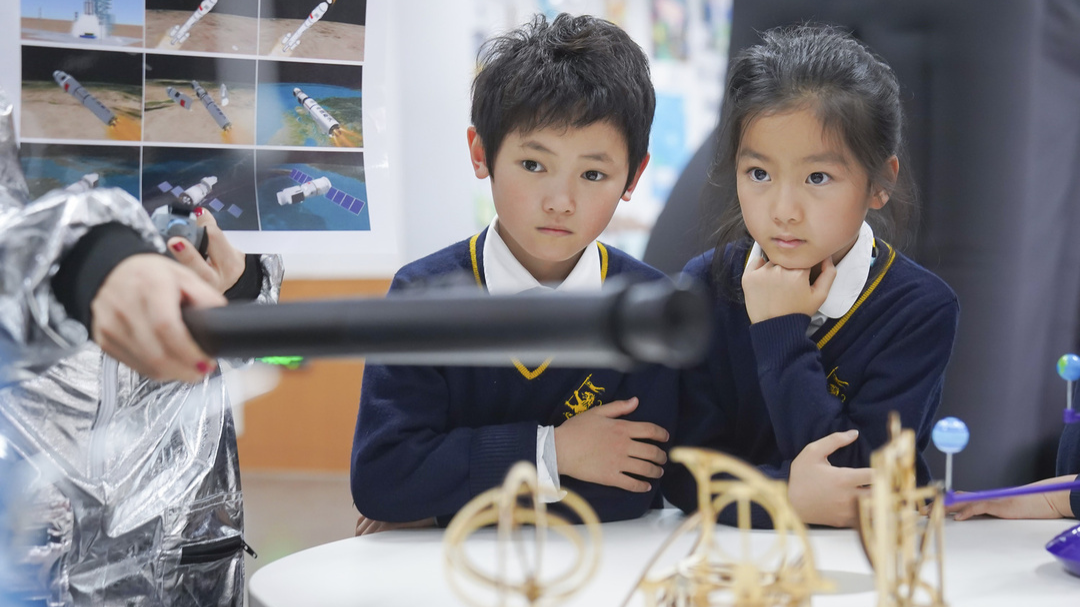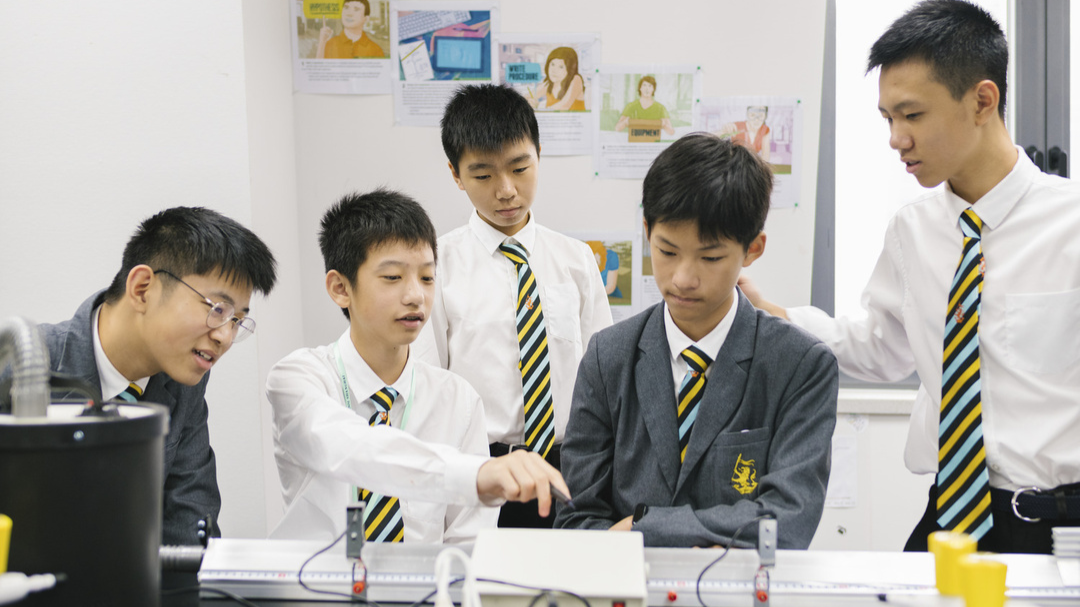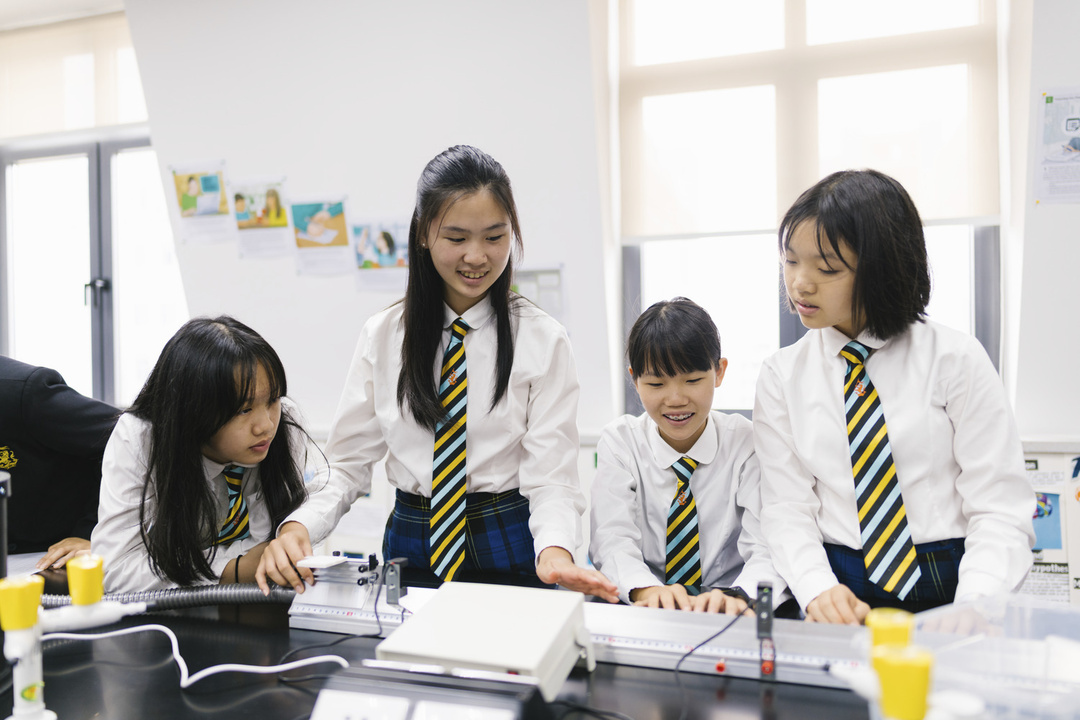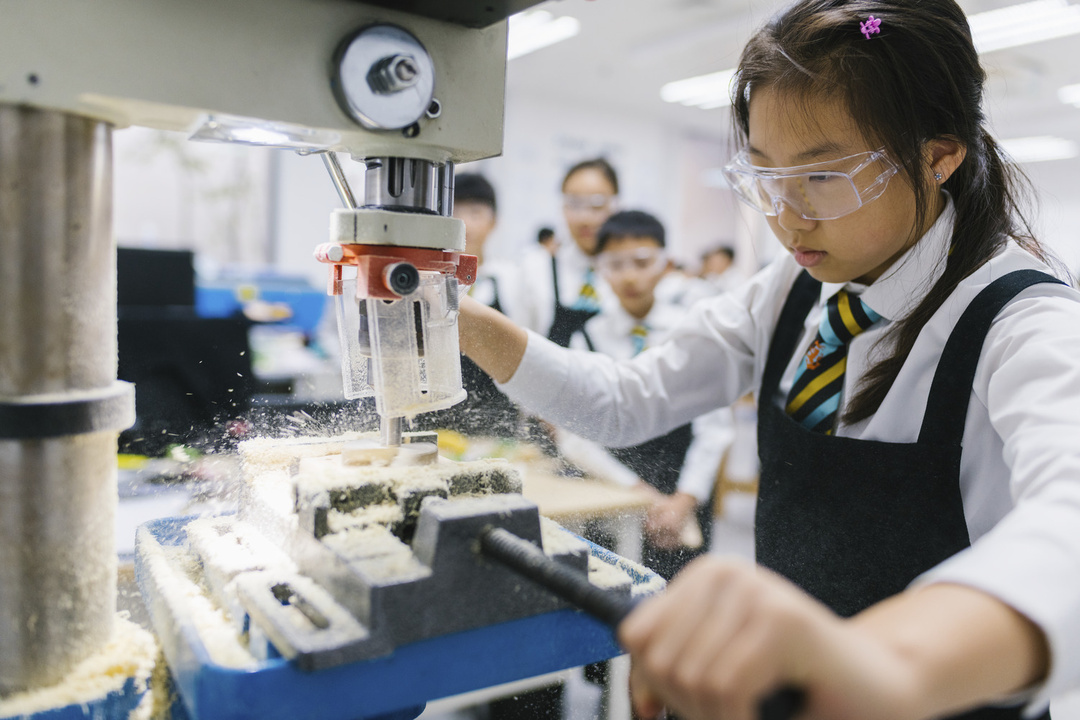
An education in science is more important now than ever. That is why it is essential to create science curriculum that targets the needs of pupils in each age group, building on each stage in their learning journey, helping them to build their skills in inquiry, critical thinking, and problem-solving.

Science Curriculum at Primary
In Huili's Primary School science curriculum, pupils begin to make observations of phenomena like the formation of salt crystals and diffusion in water. They also conduct hands-on science experiments, making soda fountains, observing acid-base reactions, and learning about the magic of the molecular world. During these activities, pupils learn basic scientific concepts, practise their hands-on skills and develop a sense of discipline and safety in laboratory settings. This training lays the foundation for pupils to move on to the science curriculum in Junior High.

Science Curriculum at Junior High
Our Junior High pupils will learn how to draw patterns from observations, describe experimental phenomena more accurately in scientific terms, build models to explain experimental principles, understand the strengths and limitations of different models, use a variety of graphs and charts to present and analyse data and deal with errors.
At this stage, we also begin to emphasise the integration of disciplines, using project-based learning to solve practical problems and to extend scientific principles. Science answers questions that arise from observation. Engineering solves real-life problems.

Technology (including mathematics) provides the tools to answer questions and solve problems. The STEM concept was born out of the fact that science questions often involve engineering problems. Only by solving engineering problems can accurate data be obtained to provide a basis for conclusions.
For example, after studying the unit on 'Circuits', pupils are expected to make a model of a home circuit based on parallel and series circuits that they have learned in class. This is a completion of the application from theory to practice. After the 'Bacteria and Disease' unit, pupils collect and grow bacteria at school. They think about the locations in everyday life where bacteria may be most prevalent and understand the ways in which humans can become infected and perhaps suffer a disease. They can further develop their knowledge of bacteria by culturing them and using them to make paintings and generate electricity.
In Huili's science CCA programme, pupils will explore making stretch bridges to solve the conflict between pedestrians and travelling boats. In this specific problem, pupils need to have an engineering budget concept, use what they have learned to draw and find materials to make the product. They also have to consider the market feasibility of the product so they can actually solve the problem on a practical level.

When pupils learn the scientific method of inquiry, we develop their research skills step by step. Pupils choose a topic based on their interests and propose a problem they want to solve. They also need to put forward hypotheses, variables and the scientific rationale behind them to ensure that the question posed is worthy of scientific investigation. Once the topic has been decided, pupils are expected to manage their time carefully, from designing and doing the experiment, collecting and processing data to reporting their findings and reflecting on the accuracy and reliability of the experiment.
In grade 6, pupils focus on the concept of 'variables' and the use of 'tables'. In grade 7, they focus on writing experimental methods; and in grade 8, they learn to evaluate and reflect on their findings. At all times, pupils are expected to choose the appropriate tools and instruments (lab report/panel/science paper) to effectively display their scientific inquiry process.

Preparing for IB Programme
Before entering High School, Huili pupils will have received basic training in writing scientific papers. The IB Extended Essay is an essential part of the IBDP. The essay topic can be a variety of subjects or critical thinking on a global issue.
Pupils are required to write a 4,000-word essay and a 500-word reflection paper, which will count to their overall IB score. Pupils are required to demonstrate their autonomy and creativity, their acquisition and understanding of subject knowledge and their critical thinking and reflective skills in IB Extended Essays. The science curriculum from Primary to Junior High maximises pupils' interest in research and develops their capacity for independent enquiry. This reflects the philosophy of 'beginning with the end in mind'.
Whether it is the STEM concept of interdisciplinary integration or the PBL concept of inquiry-based learning, the successful realisation of these innovative educational concepts requires teachers to reflect on these concepts and to be careful, deliberate and differentiated in their teaching practices. Therefore, much emphasis is placed on differentiated teaching, which allows teachers to act as a 'scaffold' for pupils’ learning. Teachers provide the necessary guidance only when pupils are unable to continue their learning. They will gradually reduce their guidance as pupils’ learning capacity develops.

In science education at Huili, we focus on the accumulation of basic knowledge as well as the integration of disciplines and scientific enquiry to strengthen pupils' ability to solve practical problems. In our teaching practice, we use formative assessments to examine learning outcomes and differentiated teaching to provide pupils with the necessary guidance.
The essence of education is to stimulate pupils' interest, shape their self-efficacy, facilitate their knowledge transfer and develop their critical innovation, collaboration and problem-solving skills. Our hope is that when pupils graduate, they are ready to face the world's difficult problems, and embodiment of the Huili Value of 'Independence'.
Written by Virginia